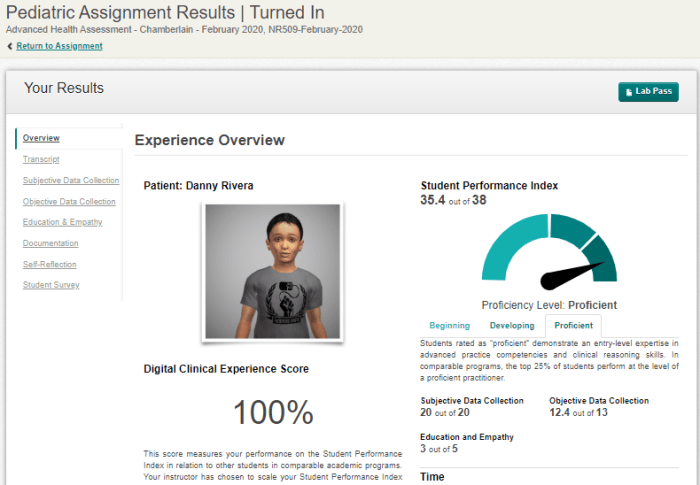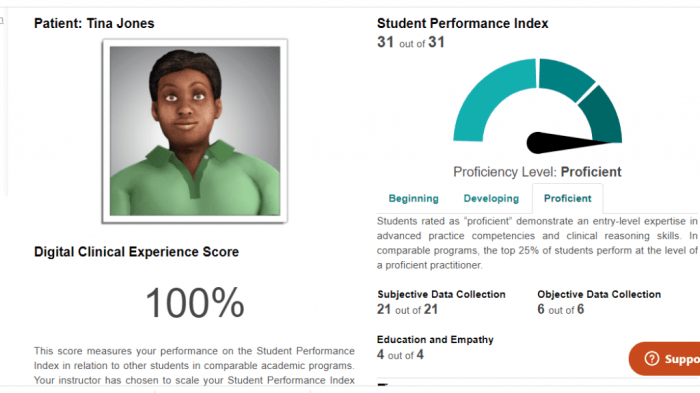Shadow Health Comprehensive Assessment Subjective Data provides a comprehensive overview of the purpose, significance, and clinical implications of subjective data collection and analysis in healthcare. This data plays a vital role in assessing clinical skills and knowledge, informing clinical decision-making, and ensuring patient-centered care.
By delving into the intricacies of subjective data collection, analysis, and interpretation, this assessment empowers healthcare professionals to effectively gather and utilize patient-reported information to enhance patient outcomes and advance the field of medicine.
1. Introduction to Shadow Health Comprehensive Assessment

The Shadow Health Comprehensive Assessment is an innovative tool designed to evaluate clinical skills and knowledge. It provides a comprehensive assessment of a learner’s ability to collect, analyze, and interpret patient data, and make informed clinical decisions.
The assessment consists of a series of simulated patient encounters, each of which presents a unique clinical scenario. Learners must interact with the virtual patients, collect a patient history, perform a physical examination, and develop a differential diagnosis and treatment plan.
2. Subjective Data Collection

Subjective data collection is a crucial component of the Shadow Health Comprehensive Assessment. It involves gathering information from the patient about their symptoms, medical history, and current health status.
- Chief complaint
- History of present illness
- Past medical history
- Social history
- Family history
- Review of systems
Patient history and self-reported information provide valuable insights into the patient’s health and well-being. They can help clinicians identify potential health problems, assess the severity of symptoms, and develop a tailored treatment plan.
3. Subjective Data Analysis
Once subjective data has been collected, it must be analyzed to identify patterns, trends, and inconsistencies in patient responses. This can be done through a variety of methods, including:
- Clustering similar symptoms
- Identifying inconsistencies between different parts of the patient’s history
- Comparing the patient’s symptoms to known disease patterns
By analyzing subjective data, clinicians can gain a better understanding of the patient’s condition and develop a more accurate differential diagnosis.
4. Interpretation of Subjective Data
The interpretation of subjective data is a complex process that requires clinical expertise and judgment. Clinicians must consider the patient’s symptoms, medical history, and social circumstances when interpreting their responses.
Subjective data can provide important clues about the patient’s condition, but it is important to remember that it is not always reliable. Patients may not always be able to accurately recall their symptoms or medical history, and they may be influenced by their own beliefs and expectations.
5. Documentation of Subjective Data
Subjective data should be documented accurately and completely in the patient’s medical record. This includes a detailed description of the patient’s symptoms, medical history, and social circumstances.
Proper documentation of subjective data is essential for ensuring continuity of care and for providing other healthcare providers with a clear understanding of the patient’s condition.
*Example of Subjective Data Documentation
Chief Complaint: Abdominal painHistory of Present Illness: The patient reports a sudden onset of severe, cramping abdominal pain that began about 2 hours ago. The pain is located in the lower right quadrant and radiates to the back. The patient also reports nausea and vomiting.Past
Medical History: The patient has a history of Crohn’s disease.Social History: The patient is a 25-year-old male who works as a construction worker. He is married and has two children. He denies any use of tobacco, alcohol, or illicit drugs.
6. Ethical Considerations: Shadow Health Comprehensive Assessment Subjective Data
The collection and use of subjective data is subject to a number of ethical considerations. These include:
- Patient confidentiality: Subjective data is highly personal and confidential. Clinicians must take steps to protect the patient’s privacy and ensure that their information is not disclosed to unauthorized individuals.
- Informed consent: Patients must be informed about the purpose of subjective data collection and how their information will be used. They must also provide their consent before any data is collected.
- Respect for patient autonomy: Patients have the right to make decisions about their own healthcare. Clinicians must respect the patient’s wishes and decisions, even if they do not agree with them.
Helpful Answers
What is the purpose of collecting subjective data in healthcare?
Subjective data collection allows healthcare professionals to gather patient-reported information, including symptoms, experiences, and concerns, which provides valuable insights into their health status and overall well-being.
How is subjective data analyzed?
Subjective data analysis involves identifying patterns, trends, and inconsistencies in patient responses. This analysis helps clinicians understand the patient’s perspective, assess their health concerns, and make informed clinical decisions.
What are the ethical considerations related to subjective data collection?
Ethical considerations include maintaining patient confidentiality, respecting patient autonomy, and ensuring that data is collected and used in a responsible and ethical manner.